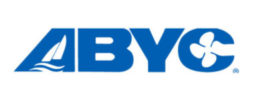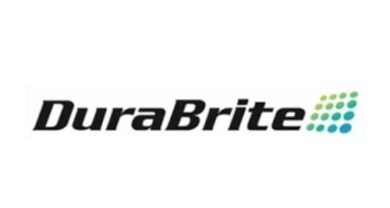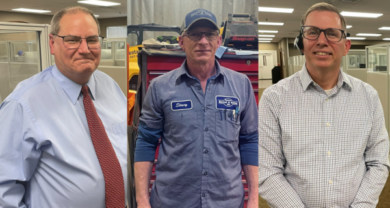Five-percent growth expected for 2004
Most of the industry agrees that 2004 was a good year – at least until the hurricanes hit.
This fall, a combination of the slowing economy, controversy involving the war in Iraq, negative headlines surrounding the elections, a decline in consumer confidence and the effects of an unusually damaging storm season seemed to take their effect at once, resulting in a decline in boat sales compared to the same months last year.
After a strong first half of 2004, however, retail boat sales are expected to be up in for the year by 5 percent or more.
In addition, the industry remains optimistic about 2005. Positive results from the Fort Lauderdale International Boat Show, in particular, suggest that the winter boat show season may be as strong as many had hoped.
Boat builders fare especially well
There is little doubt that boat builders had a better year in 2004 than the previous year. The National Marine Manufacturers Association reported in November that wholesale unit sales of traditional powerboats were up 11.6 percent through the end of August, which is the end of the boating season for many northern states.
Though the fall appeared to be somewhat challenging for the industry, it’s unlikely it will throw off the numbers to such an extent that the year will be flat or down. About 70 percent of wholesale boat sales occur in the first 8 months of the year, while 80 percent of retail boat sales occur during the January through September period, according to NMMA.
“The first half of the year was so strong that it will carry us through the end of the year, and we’ll end the year up,” predicts Thom Dammrich, NMMA president. “I expect the year to be up both on a wholesale and retail level.”
Dammrich says interest rates that “continue to creep up” have quite a way to go before they have an impact on demand, as they remain at very low levels historically.
He predicts the dip in consumer confidence will reverse itself now that the presidential campaigns, which have generated negative headlines in the press, are over.
In addition, Dammrich believes the $50 per barrel price of oil is a short-term phenomenon and thus won’t have a significant impact on the end-of-year results nor the beginning of 2005.
Lastly, he expects a well-funded promotional campaign could have a positive impact on industry results in the long-term.
“I think we’ve got to look out three to five years and at the end of that, ask, ‘OK, have we made a difference?’” explains Dammrich. “If we have, then we probably should keep doing it. If we’re not, then we probably should stop doing it.”
He reminds the industry that for the promotional campaign to have its intended effect, it must continue to strive for improvement in product, sales and service.
“All the advertising, PR and promotion in the world won’t grow boating unless we all get better,” he concludes.
Retail numbers leave room for questions
Though retail boat sales are strong, they’re not quite as strong as wholesale numbers, which suggests that some inventory may be building up at the dealer level.
As of September, retail unit sales of powerboats 15 feet and longer in the major boating states were up 7.1 percent for the year compared to 2003, according to Info-Link Technologies’ Bellwether report.
“Higher growth in the outboard segments is balancing out weaker growth in the sterndrive segment,” explains Jesse Wells, Info-Link’s director of sales and marketing. “As for the hurricane effect, we don’t see it having a significant impact in terms of year-over-year national boat sales. Clearly, people got a little gun shy during the storms, but this is likely causing pent up demand that will show itself before the end of the year.”
Wells cites positive results from the Fort Lauderdale International Boat Show at the end of October as evidence of this trend.
Some Florida dealers may disagree. Joe Lewis, general manager of the Mt. Dora Boating Center & Marina in Mount Dora, Fla., says his sales were up 8 percent for the year until the hurricanes hit. Now, he expects to break even for the year.
The more than 50 dealers tracked by training and consulting firm Spader Group also are reporting mixed results for the year through the end of September. This is particularly surprising given that Spader dealers typically outperform their peers.
Spader dealers doing over $5 million at retail saw a 5.1-percent increase in total dealership sales for the year through the end of September, but saw their net profits decline 8.5 percent.
For Spader dealers doing $5 million and under, it was a different story. While total dealership sales were down 5.3 percent for the nine-month period, compared to the prior year, they saw an 8.1-percent growth in net profits.
Despite these results, a speaker at November’s Marine Retailers Association of America Convention may have left the dealers in attendance optimistic for the future.
Economist Dr. Robert Genetski told attendees that following an exciting and troubling few years, he believes the United States is “on the verge of the longest and most sustained economic recovery we’ve ever had.”
Among the reasons he cited for his optimism were policies of the administration and Congress that are geared for expansion, a dramatically undervalued stock market, and expectations that energy prices will trend down and interest rates will rise to a “reasonable” level and then stabalize.
Genetski, a self-proclaimed believer in classical economic principles, said President George W. Bush is also a strong and effective proponent of such principles.
Therefore, an economic recovery is “something I believe you can bet on,” he concluded. — Liz Walz




